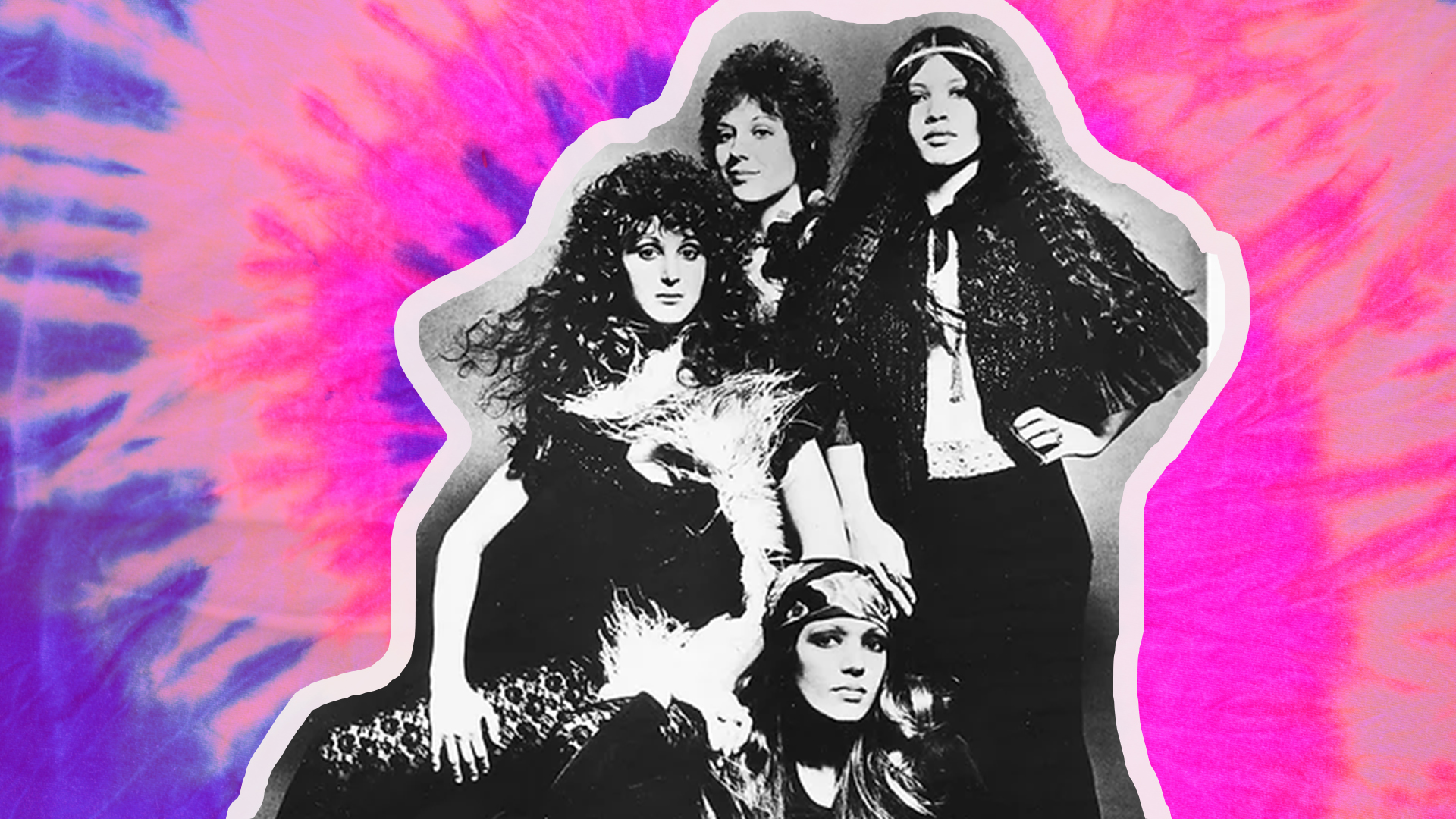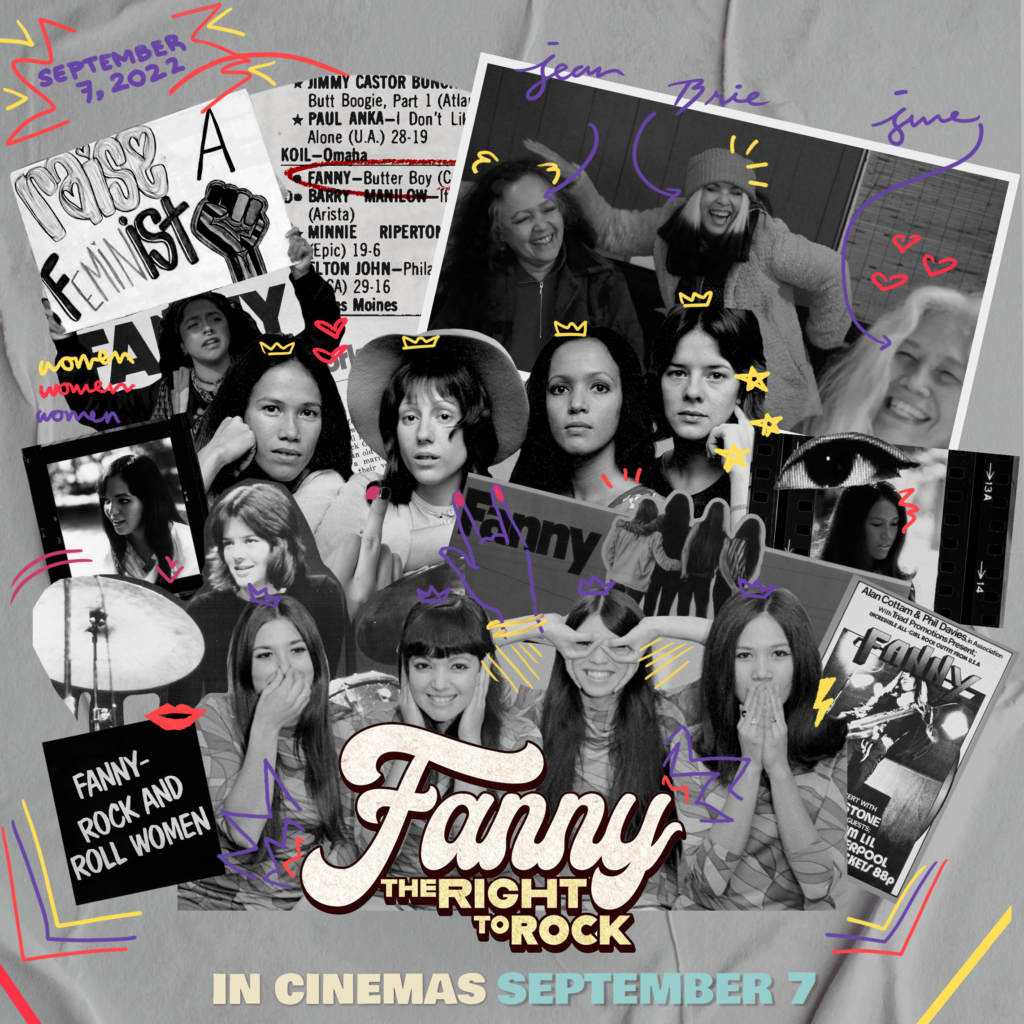Decades before The Bangles and the Go-Gos of the 80s, there was Fanny, an iconic all-female rock band you’ve probably never heard of, and how they took the early 70s by storm. Fanny—composed of Filipino-American siblings June (guitar, vocals) and Jean Millington (bass, vocals) Alice de Buhr (drums, vocals), Nickey Barclay (keyboards), Patti Quatro (guitar, vocals), and Brie Howard-Darling (drums, vocals), also a Filipino-American—was the first all-female rock band signed to a major label with a multi-label deal.
What this all-girl ferocious band started within the Sacramento music scene caught the attention and stunned even celebrity rockers such as David Bowie who later noted that Fanny was “one of the finest [expletive] rock bands of their time. But one of the most important bands has been buried.” Fanny was the first all-female rock band that earned credibility in the predominantly male music scene.
However, their story has been forgotten… until today, 50 years later, as the long-awaited re-telling of this awe-inspiring rock band’s untold story unfolds through a music documentary film “FANNY: The Right to Rock”. The movie recaps the forgotten story about a history-making all-women band who rocked the 70s with their amazing discography, while fighting against the challenges female musicians of ‘strange’ color and gender expressions face during that era.
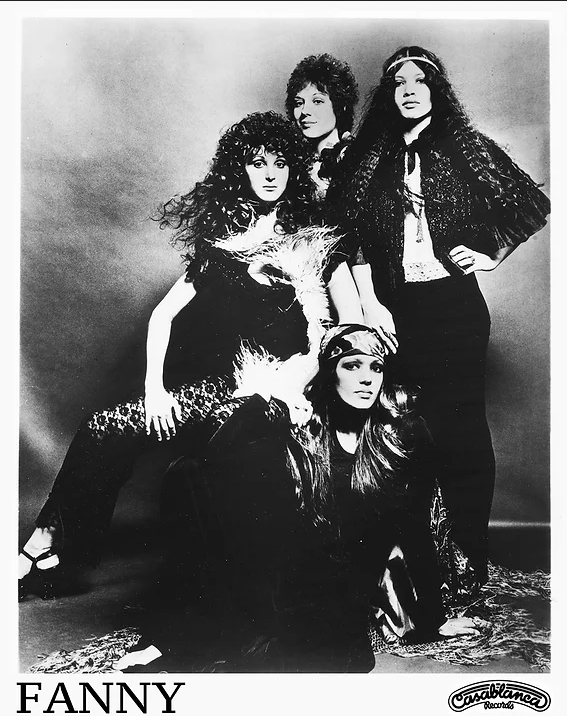
The Queens of rock and roll
The mid-1970s witnessed how Fanny achieved success with two Billboard Hot 100 Top 40, in a time when the rock scene was male dominated and fans didn’t think women belonged in rock music. It is not surprising then, why not a lot of people were aware of Fanny, even when they made fantastic albums. According to Rolling Stones, Fanny traces its origins in the 1960s when sisters Jean and June Millington’s family from the Philippines moved to Sacramento, formed their band called Svelts in high school, together with Brie Darling who joined the group as a drummer in 1966, and Adie Lee on guitar. “When the group disbanded, De Buhr, Lee along two others used the band name Wild Honey, and went off to their own tour, only to return and ask us to re-join and re-form. We were happy to,” June Millington recalled.
When the Millington sisters joined in, they changed the name to Fanny. They were soon joined by Alice De Buhr (drummer) and Nickey Barclay (keyboards).
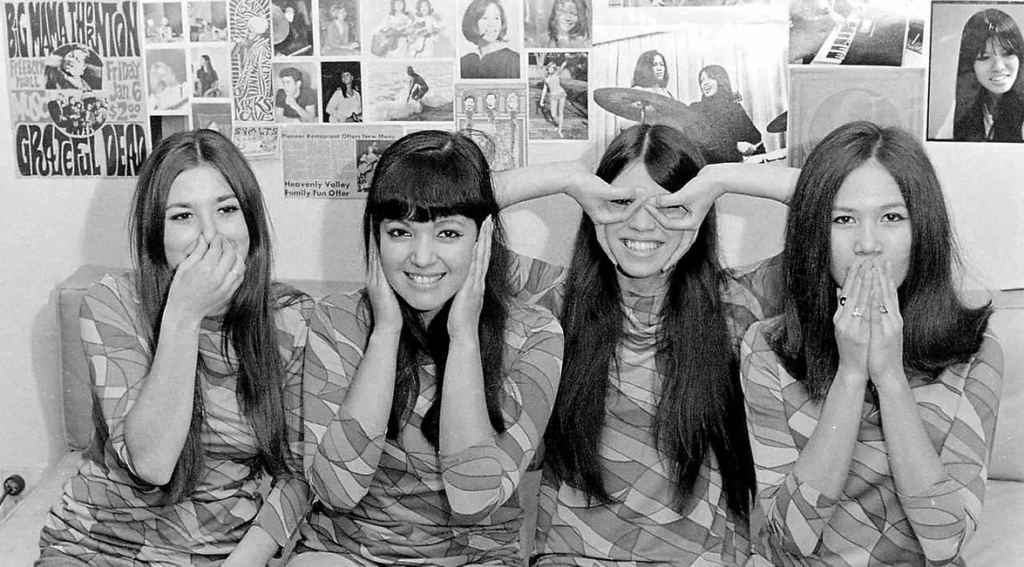
Fanny, regardless of the slang meaning of the word, symbolizes the female spirit, and Darling thought the name Fanny was just super cool. “A guy band wouldn’t be called Fanny! At least, not back in the day,” she quipped. When Darling came to Los Angeles in 1969, following the rest of the women in Fanny, they all lived together in Fanny Hill. “It was a continuation of the bond that we had formed, and the tribe that we became, from the previous couple of years playing in the band together. I love working with male bands, combinations of male and female, yet there is a special bond with women/girls. They’re like my sisters, I’ve known them since I was 16,” she mused.

Rock & Roll, then perceived as exclusive-for-male-only scene during didn’t stop how the ladies trailblazed in their musicality. There were other girl rock bands at the time, but not very many, according to Darling. Fanny’s claim to pioneering is being the first all-girl band signed to a major label to do a full-length album. They recorded a total of four albums in three years, from 1970 until 1973, under the Reprise record label with producers Richard Perry and Todd Rundgren.
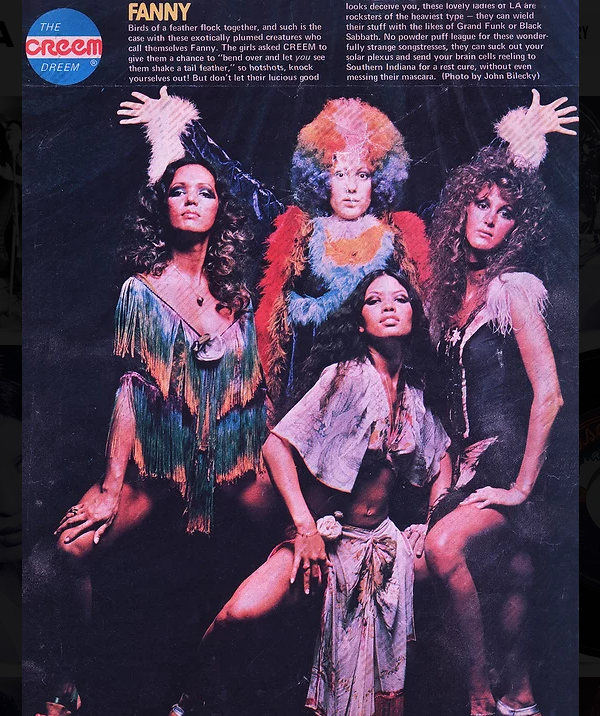
Perry produced the band’s first three albums including their self-titled debut album, Fanny in 1970, and Charity Ball in 1971. They progressed with the two more albums such as Fanny Hill in 1972 (featuring the expertise of Beatles’ own engineer Geoff Emerick), and Mother’s Pride in 1973. They also performed at The Music Hall, and reportedly played with Barbra Streisand in her Barbra Joan Streisand album in 1971. As the group savored more fame, David Bowie invited the band in one of his post-show parties. “I believe we were performing in Philadelphia when David Bowie unexpectedly showed up. He entered late, walking down the center aisle with his entourage. The spotlight immediately shifted off of us on stage, and onto him, following him to his seat. He came backstage after the show and told us ‘Always make an entrance!’” Darling recalled.

Fanny started touring internationally, specifically in London and the UK, and also made it to various TV appearances worldwide. By the time Mother’s Pride was produced, June Millington felt some restriction when the record label wanted her to wear designer clothes to exude a “hard rock” image, so she quit the band, followed by Barclay. When Butter Boy, written by Jean Millington, became a smashing hit, reaching the 29th spot on the Billboard Hot 100 of April 1975, the group had already disbanded. The Millington sisters continued playing great music with Darling and formed a spin-off group they called Fanny Walked the Earth in 2018. In September 2002, the group released another album entitled First Time in a Long Time and remastered the Live in 1972 in 2020.
The Godmothers of Rock
Rock icons lauded Fanny who, that time garnered critical commendation for discarding run-of-the-mill girl group styles and expectations of women in the rock scene by highlighting their remarkable rock music. Even groups that followed their footsteps like the Go-Gos, the Runaways, and the Bangles admitted that Fanny was their key influence. Cherrie Currie of the Runaways said: “Fanny is iconic, truly before their time. They did rock and roll that was just there.”
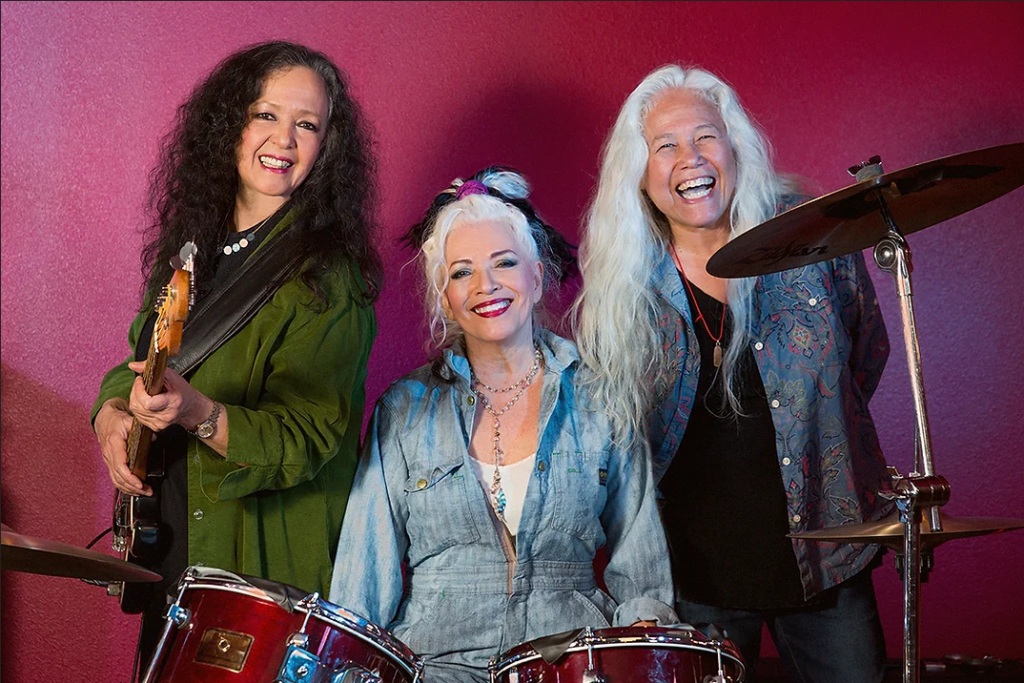
So many female bands and musicians have come forward to give Fanny props and for them, it’s always an honor, considering most of them had actual success, much more than Fanny. Darling even met Cherie Currie during the recording of Fanny Walked the Earth and the Runaways star was so full praises despite her huge success thus, she and Darling decided to make a record together, ‘The Motivator’ being fans of each other.
“I had no idea who they were, but four minutes of their music and I was hooked. This is a girl with an instrument on. This is a game-changer!” Joe Elliot of Deff Leppard exclaimed. According to Kathy Valentine, who looks up to Fanny as a key influence: “The Go-Gos got a lot of attention for what we did, and we only made three records.” But as David Bowie’s guitarist Earl Slick stated, “It’s always the ones who started it all that gets f***d.”
Breaking the barriers
While Fanny was considered way ahead of its time, the members also faced serious cultural challenges and prejudice. The band was always criticized and questioned because while music is supposed to be about freedom and self-expression, the rock ‘n roll scene was extremely harsh to women who attempted to get in, much less being an all-girl rock band in the 70s even with the male-controlled scene.
Being people of ‘color’, the Millington sisters or even Darling felt like outsiders. They relentlessly experienced racism as teenager. “We were young, we’re brown, and nobody knows where the Philippines is,” Jean Millington said, while her sister June admitted to sometimes feeling worthless during that time. Aside from their skin color, both their gender and sexuality were also questioned. In fact, people then tagged them as the first predominantly lesbian rock band. They went through a lot of sexism when club owners and executives believed they were girlfriends instead of being serious rock musicians. “It was hard. Being gay was still a disease. You could not be a lesbian in Fanny,” De Buhr bared.
Making music and following their passion also seemed like an invisible war where none of them were sure they could actually triumph over. They just had their music as their safe space and being in the rock band gave them a haven where they all could belong. “We had each other. As I said in the film, we were different together. It didn’t erase the hardships but made many of them easier to bear. One situation I had to balance, was being a teenage mom, while working like a beast to get my career off the ground. This was something I couldn’t share with any of the other girls. My situation was difficult, heart breaking, tough on both my child and me. There was a huge community of women who helped me out, including the girls in Fanny,” Darling admitted.
Despite these challenges, and only because the male-dominated world of rock was not open to having female rock stars with different skin color and sexual preferences, Fanny continued to make extraordinary music. And to all women, members of the LGBTQIA+ community, and allies who continually advocate for their rights, Darling had this to say: “Love who you are, be open, loving, and fight for it!”
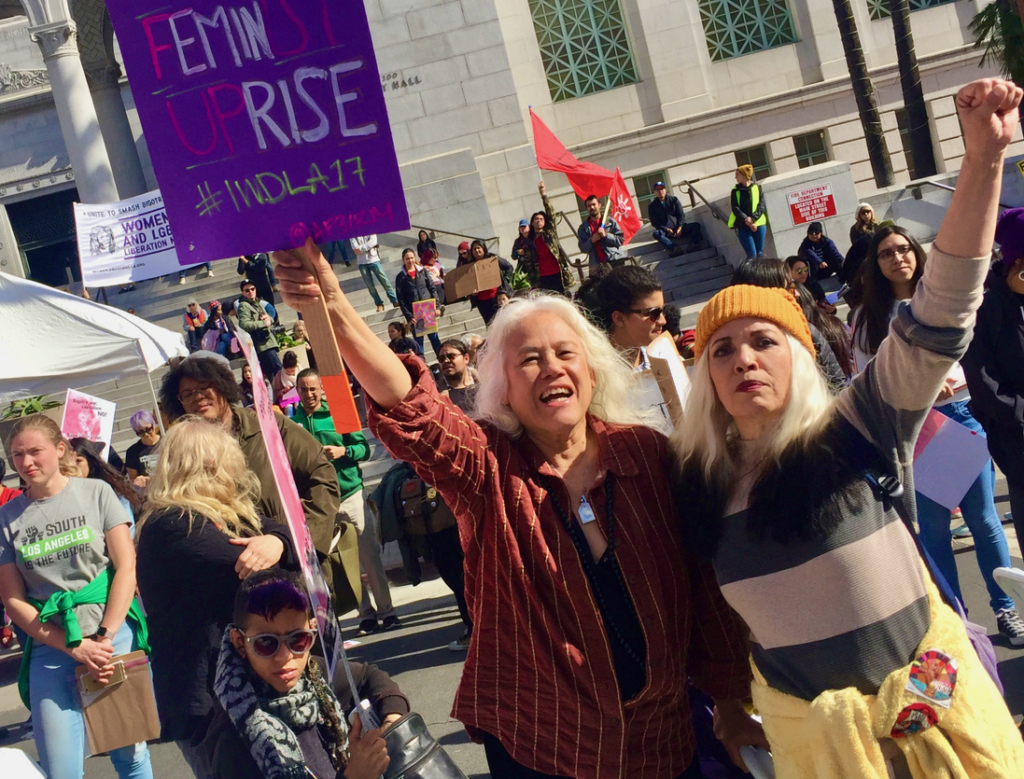
The Right to Rock
The film was written and directed by Bobbi Jo Hart who has been making documentary films for 25 years, with most recent award-winning films include Rebels On Pointe (which celebrates the untold story of the all-male, drag ballet company Les Ballets Trockadero de Monte Carlo) and I Am Not a Rock Star (which follows aspiring concert pianist and Juilliard student Marika Bournaki from age 12-20). “I was researching to find a new acoustic guitar for my then 11-year-old daughter Phoenix. While at the Taylor Guitar website, I discovered a picture of Fanny lead guitarist June Millington, which included some of the story of the band. I was immediately riveted by their ground-breaking efforts and experienced a simultaneous combination of excitement and frustration. I was excited to discover this incredible rock band of women who played their own instruments and wrote their own songs back in the 60s/70s but frustrated that I had never heard of them,” Hart confessed.

The impetus for Hart to start making any film always begins by a serendipitous discovery of an untold story of underdogs or people in marginalized communities whose stories of determination and resilience deserve recognition. All of her films have been about girls and women except one (Rebels On Pointe), as women’s perspectives and contributions have not been properly recognized in history. “I realized my mission as a filmmaker has ultimately been to help right those wrongs and help bring wide awareness about girls and women’s stories and contributions to a wider audience, not to mention help provide amazing, strong mentors to girls and young women,” she added.
Hart’s most memorable part of the project was seeing Fanny bandmates in theaters full of people who were laughing, crying, cheering, and applauding their story and accomplishments. “I even postponed releasing the film when COVID hit in 2020 with Hot Docs International Documentary Film Festival, one of the world’s most prestigious festivals, because I wanted to have live, in person film screenings that Fanny bandmates could viscerally experience—and to perform live at as well! So, we released the film in 2021 and it won the coveted Audience Choice Award at Hot Docs!” she excitedly stated. After that, various festivals and distributors reached out to Hart to program the film and to bring Fanny bandmates in person for Q&A and/or to perform—and that has been just so magical to witness, according to her—including the #GetBehindFanny intergenerational initiative she started at film festivals, inviting up and coming bands of women to perform Fanny covers and/or with Fanny bandmates, which has happened in so many places already.
Fanny: The Right to Rock takes rock fans down memory lane to the glory days of 1970s rock ‘n roll era through a remarkable narrative, combined with testaments from Fanny and their fans, and other rock icons. This documentary film retells the story of the legendary Fanny, the most influential female rock band that soared during that era, amplifying their stand, so as not to be totally silenced whether on issues that involve their race and sexuality, and the power of their music.
As OPM rockstar Raimund Marasigan puts it: the film tells the untold story of the Filipina-led rock band in the 70s. “It’s very powerful and inspiring. I hope to hear more of them and meet all of them,” Marasigan said during the exclusive advance screening of the documentary. “FANNY is very funny,” he added. Apart from him, Filipino music icons Boboy Garovillo and Jim Paredes of the APO Hiking Society, as well as contemporary rock musicians Jazz Nicolas of Itchyworms, and Caren Tevanny of General Luna had only rave reviews of the music documentary FANNY: The Right to Rock.
Garovillo, whose musical group APO Hiking Society was active the same time as FANNY, found a connection with the long-forgotten ladies of rock-and-roll. “I urge you all to watch it. Kahit paano makaka-relate kayo sa buhay ninyo, kung paano ang (kanilang) paghihirap and how to accept things in life. Ang ganda po,” he said. Paredes, meanwhile, was awed at how Fanny still rocks in their 60s. “They were the inspiration (of other female rock bands) and now they’re being recognized and that’s really a wonderful thing,” he said. “You know at their age now; they’re still doing it and that’s love!”
Singer Caren Tevanny, who was also a guitarist for all-female band General Luna, likewise praised the documentary. “No matter how old you are, you can still do your thing. You have to try and try, and you just do it for your happiness,” Tevanny said when asked about what she learned from FANNY. Meanwhile, Itchyworms drummer Jazz Nicolas empathized with the struggles of the female musicians. “I feel their pain. Maraming musicians ang makaka-appreciate ng story nila,” Nicolas said. “I wish I lived in that era so I could have jammed with them. It was really a very inspiring movie,” she added.
FANNY: The Right to Rock currently has a 100% score on Rotten Tomatoes. Variety’s Dennis Harvey writes that the film “remains thoroughly engaging thanks to the demonstrable talent and brassy forthrightness of its central personalities.” Another top critic, Randy Myers of San Jose Mercury News, praises the film for being “An illuminating documentary on the sexism, racism, ageism and homophobia that confronted members of Fanny, which many consider the first all-female rock band.”
“Fanny is absolutely legendary! A band of incredibly talented, ground-breaking women so far ahead of their time! A band who included Filipina-Americans, straight and queer bandmates and all self-taught musicians who came together through the shared passion of music, and created a sisterhood in sound so powerful that it changed the face of rock & roll. Music is truly a universal language and Fanny speaks it fluently, with lyrics so powerful and moving, such magnetic stage presence and incredible musicianship that deserves to be recognized around the world. Fanny ROCKS!” Hart professed.
The film is oozing with character in every aspect, punctuated with a star-studded series of guest speakers, and interspersed with captivating rock music authentic only to Fanny, as members of this enigmatic band have once again stood up and brazenly speak of their experiences. Quite impressive is Hart’s directorial style that showcases and allows the real superstars of the film, Fanny members, to hog the limelight. By the end of the film, there is a strong sense of victory as one realizes how Fanny—despite being underrated, trampled upon, and after successfully overcoming bigotry, chauvinism, and racism—is relishing its rebirth in all its glory, something that they genuinely deserve.
Half a century later, and with the members now in their 60s and 70s, and this documentary film rolling out, where do does Fanny go from here? In retrospect, Darling believes that Fanny women have opportunities to work whether together, or individually. “I am Fanny, but I am not only Fanny. I’ll take what I have learned from my years with Fanny and other all women bands, and the years of being a professional, working, recording, touring female/Filipina musician, singer, and songwriting bold ass woman. My job/art is not done,” Darling expressed, and shared that her nephew James Bishop and her Grammy-nominated husband producer Dave Darling will produce and oversee her first solo record, after her 59-year professional musical career. She feels fortunate and grateful. “Rocking is a metaphor. When you fail, you pick yourself back up again. We were considered bad-ass, and we still are,” June Millington declared.
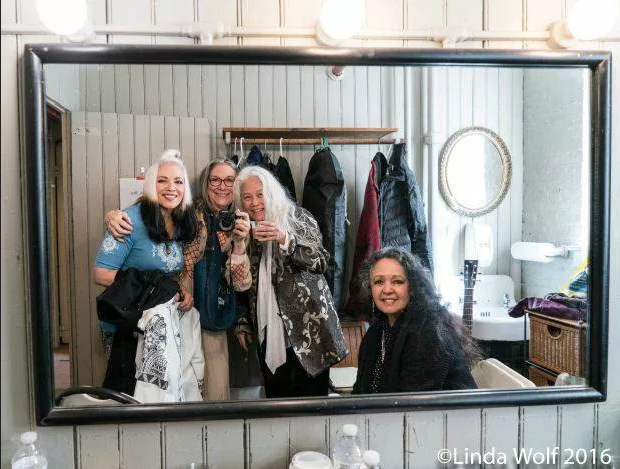

Seeing Fanny’s story unravel brings an avalanche of feelings—of melancholy, pain, and frustration, but also of amazement, triumph, and pride—because everyone knew they had the spunk and the spirit, even when society was not willing to listen. Notwithstanding, 50 years after they released their landmark album, these godmothers of chick rock will continue to prove that rock ‘n roll will never be just a man’s game. Watch out, boys! Fanny’s back and they will ruthlessly play straight-in-the-gut level of hard rock with a fierce feminine touch.
(Showing in select cinemas in the Philippines on September 7, FANNY: The Right to Rock, is distributed by TBA Studios. For more updates on this film, follow TBA Studios on Facebook, Instagram, and Twitter.)
Other POP! stories you might like:
Filipino filmmaker David Olson is out to take film festivals by storm with his gripping filmography
‘Relentless’ is Coach Reno Ursal’s love letter to the Filipino diaspora

